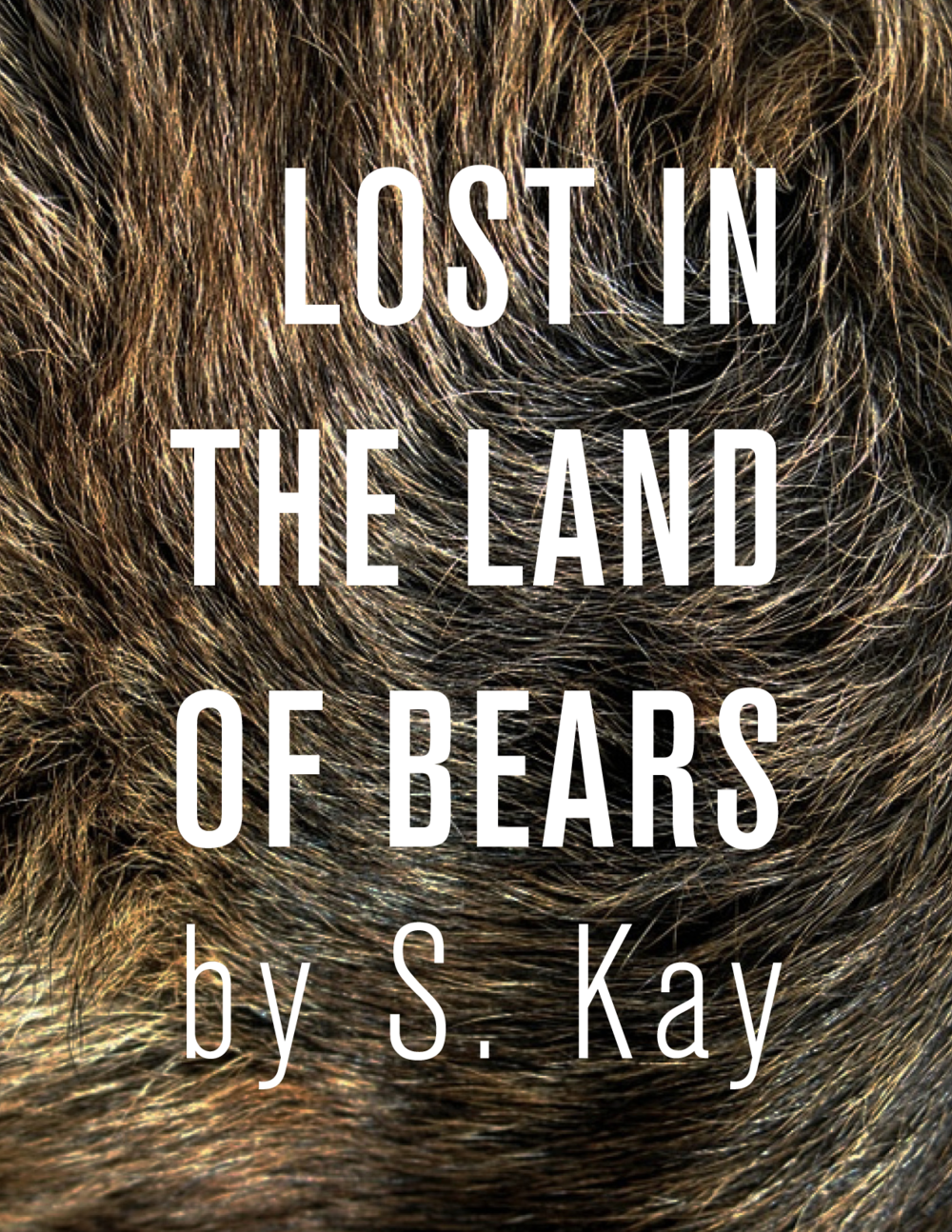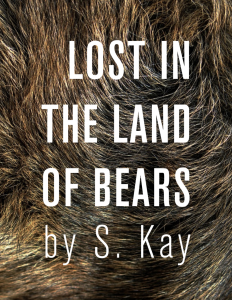Lost in the Land of Bears by S. Kay
-Reviewed by James Knight–
There are many writers on Twitter who play with the tweet as a literary form, exploiting the constraints of the 140-character limit and exploring the ephemerality and interactivity of tweets. Twitter fiction can be intoxicatingly condensed, sharp, ingenious, and unlike other short-form fiction its character is affected by its unique environment, in which adverts, GIFs, invectives, jokes, selfies, short videos, news stories and all manner of words and pictures vie for our attention. I have written elsewhere that Twitter is a gigantic cut-up text, forever in the process of being written, and because we all follow different combinations of people and dip into the timeline at different points, everyone’s experience of reading it is unique. When I happen upon some micro fiction by Jeff Noon or a ludic experiment in narrative by George Szirtes, sandwiched between diatribes about the state of the Labour Party or photos of cats, I stop scanning and start paying attention, and for a moment everything goes quiet and I am in a different world. Then I move on and the voices start again: Donald Trump, burkinis, Brexit, Walker’s Crisps, Metallica…
S Kay tweets microfiction (as @blueberrio), but has also published books containing narratives made up of tweet-length fragments, notably the wonderful sci-fi fable Reliant and now Lost in the Land of Bears. I say ‘tweet-length fragments’ and not ‘tweets’ because the characteristics that distinguish a tweet from other forms of microfiction are lost when it is copied and pasted into a static document. Many of the effects remain, of course, notably narrative condensation and an elliptical approach to presenting scenes and sequences of events. What is so exciting and enjoyable about Lost in the Land of Bears is that each fragment has its own title and its own page, inviting the reader to savour it as a self-contained prose poem. I found myself rereading many of them several times, enjoying their impressionistic details, cadences and striking juxtapositions, before moving on with the story.
The story is simple. A gay couple (implicitly female) are on holiday in a resort where luxury and pleasure are facilitated by a robot workforce. Fleeing an invasion of noisy children, they become lost and encounter some strange fairy-like beings called ravenites (‘a cross between ravens and sprites’). It turns out that the ravenites’ natural habitat is being polluted by human beings, and the narrative culminates in an ecological awakening on the part of both characters, who, until that point, had been blissfully absorbed in each other and in their own pleasure. The plot has a free, loose feel to it, as if the author hasn’t allowed herself to be constrained by too rigid a plan, and consequently some of the events feel arbitrary, giving the whole narrative an oneiric quality. For example, we start off in the intimate, erotic world of the couple (‘The hotel door slams. We gasp between kisses.’) but there is a sudden change of tone when we learn of ‘the autonomous drone war crisis’. The story shifts gear and direction with mercurial rapidity, but does so in a way that is satisfying: on closer reading, it’s clear that the big changes have been foreshadowed, so even an apparently incongruous event has been cleverly built-up to.
Kay’s use of the first person in the present tense gives the book immediacy and a sense of urgency. Frequent use of the second person establishes the reader as the narrator’s lover, and I found the intimacy between narrator and reader one of the most powerful aspects of the narrative, especially in the fragments focusing on love and desire. Kay’s most beautiful and striking vignettes are those in which little is happening and the characters are simply enjoying their time together. Here is one of my favourites:
Moonlight hides behind a cedar branch over our balcony as the glow of a screen lights your face from below. You heart a photo of the moon.
Lost in the Land of Bears@blueberrio pic.twitter.com/elzi7z6Tb0
— NO GLYKON (@noglykon) July 29, 2016
The title Lost in the Land of Bears perhaps refers to the author’s compositional technique. She has allowed her imagination and words to lose themselves a little (despite the moralistic ecological message), with the result that the book seems to belong to several genres at once: sci-fi, fantasy, fable, adventure, love story. It makes for an intriguing, memorable read.
My only grumble is that the bears didn’t feature very much, having been supplanted by the ravenites as the book’s source of ambiguous otherness; Lost in the Land of Ravenites would have been a more accurate title. I wonder if the story might have been more compelling if the ravenites had been left out altogether, and the bears, in all their mystery, violence and beauty, had been the main focus of the story.





Fine review. Makes me want to read the book and explore the twitter as a literary form.